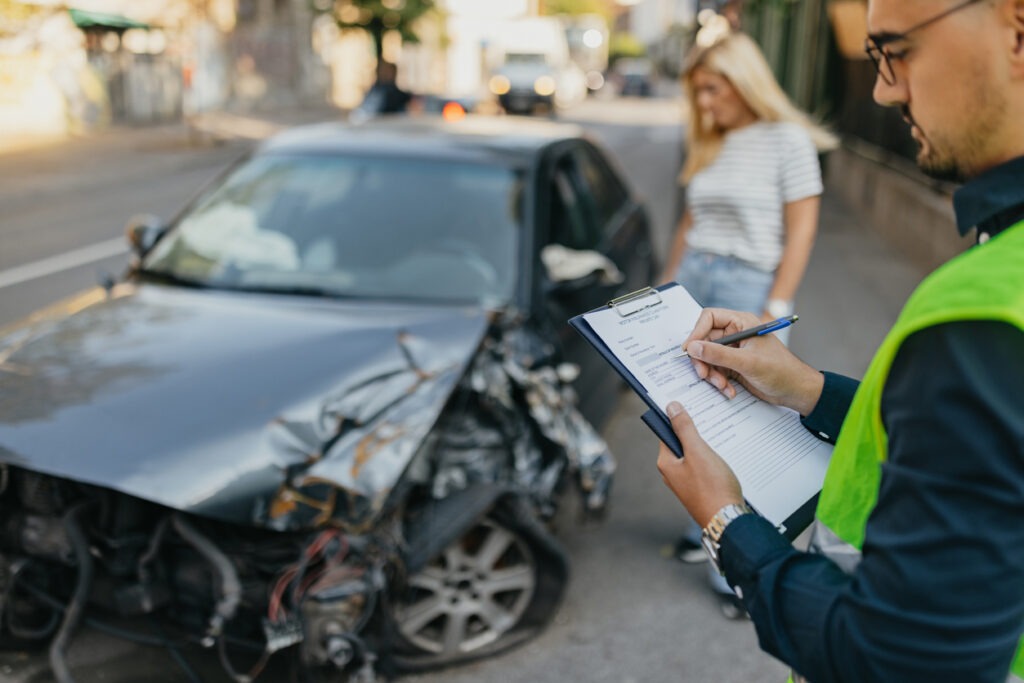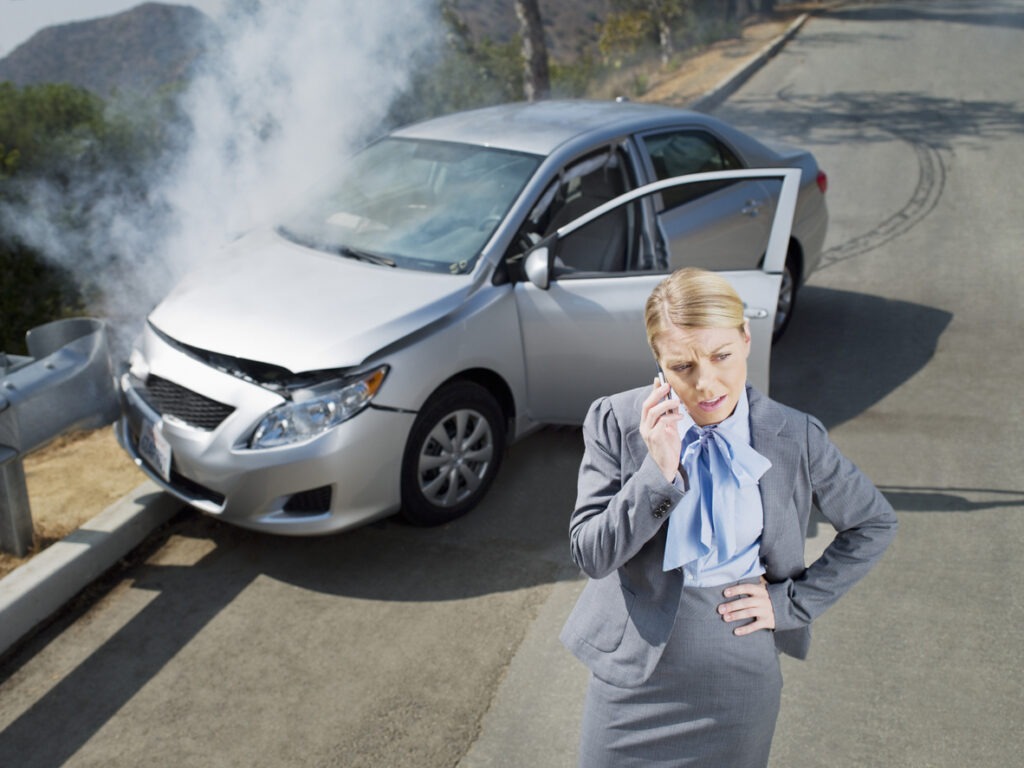
When you get into a car accident, it is typically added to your driving record, which can affect your insurance and other aspects of your life. Fortunately, accidents don’t stay on your record forever. But how long does a car accident stay on your record in California?
Typically, accident records are kept by the DMV and insurance companies for three years before being deleted. But there is some variation. Some car accidents may not be added to your record in California, while others may linger for up to 5-10 years, depending on the circumstances.
Your driving record is accessible to potential employers, law enforcement, and insurance companies. This can result in increased insurance rates and, in some cases, lost work opportunities until the accident record expires.
Do All Car Accidents Show Up on Your Insurance Record in California?
Not all accidents show up on your record. Extremely minor accidents are not likely to be worth creating a record. These include light bumps in the parking lot and scrapes that cause no effective damage or cost. These may not appear on your car accident record in California.
It is also possible that if another driver is found entirely at fault in the police investigation, the accident may not appear on your record. California law prevents insurance companies from penalizing you for not-at-fault accidents.
How Long Does an At-Fault Accident Stay on Your Insurance Record?
At-fault accidents are another story. In many states, accidents can stay on your record at different rates, depending on where the accident occurred. In California, car accidents typically stay on your record for three years. After three years, they are likely to be deleted. However, it is not uncommon for at-fault accidents to remain on your car accident record in California for up to five years.
Consequences of Car Accidents on Your Record in California

Your driving record is referenced for a variety of purposes, from insurance rates to employment opportunities. Accidents do eventually cycle off your record, so only recent accidents are usually considered when evaluating your safety on the rod. However, if you have a car accident on your driving record in California in the last 3-5 years, it could lead to negative consequences. This can be particularly concerning if you have been in a recent car accident in California.
But what are the possible consequences of having car accidents on your driving record?
Increased Insurance Rates
Insurance companies set your rates based on risk potential. A person who has been in car accidents is deemed a higher risk when providing car insurance. The more frequently you have been in accidents, the more of a risk you are determined to be. This causes insurance companies to crank up the monthly prices in an effort to collect more money to cover the cost of getting into another accident while insured.
This means accidents on your record are very likely to result in a higher cost to insure both your vehicle and yourself as a driver. People who have been in a recent accident are likely to pay over $800 more per year for car insurance. The good news is that California law prevents insurance providers from raising rates for accidents where you were not at fault.
Employment Opportunities
Your driving record may be considered relevant for some professional roles. Any job where you are expected to drive while representing the company or operating a company vehicle will likely check your driving record before offering you a job. Having a car accident in your recent driving record in California can result in restrictions or losing the opportunity at a job that involves operating a vehicle.
If you are already in a role that requires driving, an accident on your record can result in consequences such as reprimand, suspension, or temporary demotion due to the flawed vehicle safety record.
Rental Opportunities
Car rental companies also look at your driving record. Naturally, before you are authorized to rent a car, they want to confirm that you are a safe driver. Rental companies prefer a clean driving record. A recent accident is bad news. You may be denied car rental service, or the cost of car rental may spike as a result of an accident on your record.
Driving Restrictions
Being found fully or partially at fault for an accident can result in “points on your license,” which is part of the California driver’s license points system. Points count against you, and if you accumulate enough points in a specified period, you risk driving restrictions, license suspension, and other associated consequences.
This can significantly limit your ability to get around and may last for months. License suspension is more likely if the accident involved certain factors, such as driving without insurance, failing to report the accident or intoxication.
How to Prevent Insurance from Going Up After an Accident in California

When you have been in a car accident, your first concern may be medical care and repairs. After this, however, the biggest long-term concern is your insurance rates. Insurance companies often increase rates after an accident due to the perceived increased risk. This can have a significant impact on your finances and monthly budget.
To prevent your insurance premiums from increasing after an accident, you can take specific actions to avoid having an accident added to your driving record or used against you by insurers.
Drive Carefully and Defensively
Avoid being found at fault for accidents by always driving safely and carefully. Defensive driving helps you assess every situation, avoid other drivers displaying risky behavior, and ensure you are never acting outside of traffic laws. If you can’t be deemed at fault for an accident, California law prevents insurers from increasing your premium.
Call All the Right People
Call your insurance provider and, if necessary, the police after an accident occurs. Don’t risk being found to have “failed to report” an accident. No matter how much you just want to go home after a stressful situation, your insurance and often the California police need to be promptly informed. Otherwise, you risk costs and higher insurance rates.
Request/Buy Accident Forgiveness
Some insurance providers offer accident forgiveness. You pay one lump sum to avoid your rates going up after an accident.
Take a Driving Glass
You can offset the perceived higher risk of your policy by taking a driving class. Driving classes can lower your rates and can be a way to prevent your risk-assessment level from going up along with your rates.
Adjust Your Policy
You may be able to renegotiate your policy for better terms. You can increase your deductible (the amount you pay before insurance kicks in) to keep your rates low. Or you can jump ship and get a nice new-customer deal from another insurance provider instead of letting your current provider turn up the costs.
When to Contact a Car Accident Lawyer
The best time to call a car accident lawyer is shortly after the accident occurs. If you’ve been injured in a car accident, seek medical assistance first. Make sure you are safe and treated by a medical professional. Then, call a car accident lawyer to help you build your case for a strong insurance claim. If necessary, you may file a private suit against the at-fault driver.
A lawyer can provide expert advice on navigating insurance claims, gathering evidence, and negotiating settlements. They also ensure that you meet all legal deadlines and handle paperwork efficiently. Nadrich Accident Injury Lawyers are here to help. Contact us if you’ve been injured in a California car accident.

